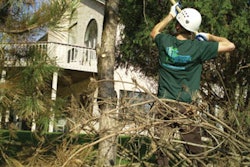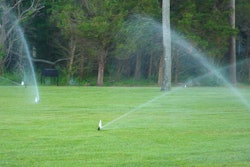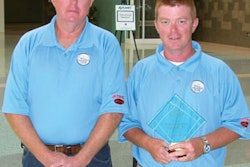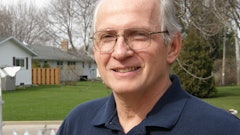"The green industry has been talking about ‘being more professional' for several decades. The thought is, if the level of professionalism within the industry can be raised, then its image, ability to recruit new employees and pricing for services will also increase, allowing entrepreneurs to take their rightful place along other industry professionals."
These words come from incoming PLANET president Bill Hildebolt, Ph.D., CTP, CTP-CSL. The owner of Nature's Select Premium Turf in Winston-Salem, NC, Hildebolt admits that becoming a true professional is easier said than done. As he relates, being a professional requires more than wearing a uniform, driving a clean truck and using the word "professional" when communicating with customers. As defined by Webster, "A professional is a person who, by education, training and experience, performs work, analyzes and solves problems, makes decisions and promotes ethics associated with a particular field."
In fact, being a professional encompasses several disciplines. "I like to use the three-legged stool analogy when discussing the topic," Hildebolt explains. "The stool, in this case being a professional, is only as stable as all three of its legs (or disciplines). If one leg is weak or fails, the stool will collapse. If an individual lacks all the required attributes of being a professional, he or she will fall short of being a true professional."
What are these "professional" legs? Very simply put, being a professional requires having technical expertise in a chosen field, working hard to achieve goals, and having the social skills to successfully interact with customers, suppliers and associates.
"As I discovered growing up on a farm, three legs are good, but four provide an even better foundation," Hildebolt says. "There's a fourth leg to being a professional: personal character, which, if lacking, will erode any attempt to be professional. All the technical expertise, hard work and social skills in the world will not make up for flawed character traits—those that are evidenced by not being open, honest, sincere, trustworthy and straightforward when dealing with people."
No wonder it takes an industry so long to develop a truly professional reputation. One doesn't become a professional overnight. It requires practice and perseverance in the following areas.
Technical expertise. Professionals are the "go-to" people within the industry. They have the education, training, talent, certification and required licenses to engender confidence in their ability to get the job done.
Hard work. If you're willing to work hard, anything is possible. Yet hard work goes beyond working up a sweat. It involves the commitment, dedication and willingness to overcome challenges, the discipline to stay focused on the task at hand, and the motivation to reach goals.
Social skills. Perception is reality. If green industry service providers look and act professional, then customers are more likely to view them as professionals. Having good social skills—the right attitude, an affable personality, and the ability to communicate clearly and effectively—will also give landscape contractors and lawn care operators a competitive advantage over those who lack them.
Personal character. Lacking personal character cancels out every other leg of the now four-legged stool. An individual can be educated, work hard and have excellent social skills, but if he or she is dishonest or suffers from other character flaws, the professional designation will never be within reach.
There's one more a caveat to the professional equation. "Professionals learn to maintain a balance at work, and they balance work and free time," Hildebolt explains. "Having a healthy balance at work and at home is critical to being healthy and living a long, rewarding life. Without this important balance, being a professional offers little reward."
PLANET's new president has had a long career as a professional. After graduating from The Ohio State University with a Ph.D. in Food Technology, Hildebolt worked for the Campbell Soup Company, the Campbell Institute for Food Research and Technology, and R.J. Reynolds Tobacco. In 1994 he leveraged his education and job experience into a new venture, Nature's Select. Today his company employs upwards of 30 people providing lawn care, aerating, overseeding and other services to customers in Winston-Salem.
Hildebolt takes his profession and industry very seriously. "One of my keen areas of interest as a member of PLANET Leadership is the issue of professionalism," he relates. "Even though our industry has come a long way over the years, our association needs to maintain its focus on providing the tools and resources necessary to raise the level of professionalism among our members and within the entire green industry."
Visit Nature's Select for more information.

![Doosan Bobcat Wacker Neuson Stack 2ec Js Pb V6e[1]](https://img.greenindustrypros.com/mindful/acbm/workspaces/default/uploads/2025/12/doosan-bobcat-wacker-neuson-stack2ecjspbv6e1.CPyyz8ubHn.png?auto=format%2Ccompress&bg=fff&fill-color=fff&fit=fill&h=100&q=70&w=100)








![Doosan Bobcat Wacker Neuson Stack 2ec Js Pb V6e[1]](https://img.greenindustrypros.com/mindful/acbm/workspaces/default/uploads/2025/12/doosan-bobcat-wacker-neuson-stack2ecjspbv6e1.CPyyz8ubHn.png?ar=16%3A9&auto=format%2Ccompress&bg=fff&fill-color=fff&fit=fill&h=135&q=70&w=240)








